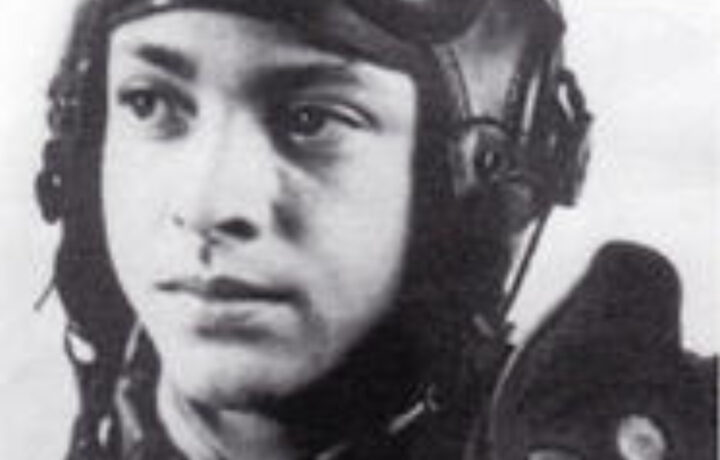On January 20, President Donald Trump signed multiple executive orders almost immediately after taking his ‘Oath of Office’. One particular EO was the directive dismantling diversity, equity, and inclusion (DEI) programs, which ignited widespread backlash from historians, civil rights advocates, and the public. One particular subject was the Air Force releasing an internal statement about removing the materials to educate new airmen on the Tuskegee Airmen and the Women’s Airforce Service Pilots.
The People Have Spoken
In response to public outcry from politicians, civil rights organizations, and other advocates, the Air Force reversed its initial decision on January 27. Gen. David W. Alvin, Chief of Staff, addressed concerns directly, stating, “Let me be clear—no curriculum or content highlighting the honor and valor of the Tuskegee Airmen or Women Airforce Service Pilots has been removed from Basic Military Training.” This reinstatement reaffirms the military’s commitment to preserving its history while remaining independent of political influence.
Throughout history, minority military units have played critical roles in warfare, often fighting against both the enemy and systemic discrimination. These units not only shaped battles but also helped break barriers and pave the way for future generations. From African American soldiers proving their valor in both World Wars to Indigenous code talkers crafting unbreakable communication, these groups left an undeniable legacy. Here are seven of the most impactful minority military units in history—including two comprised primarily of women.
1. The Tuskegee Airmen (World War II)
The Tuskegee Airmen were the first African American military aviators in the U.S. Army Air Forces. Despite enduring racism and segregation, they flew over 15,000 sorties in the European Theater and proved to be one of the most effective fighter escort groups of the war. Their success contributed directly to the desegregation of the U.S. military in 1948.
2. The Six Triple Eight (6888th Central Postal Directory Battalion, World War II)
The Six Triple Eight was the first and only all-Black, all-female unit to deploy overseas during WWII. Their mission? Sort through a massive backlog of mail—millions of undelivered letters—restoring morale among U.S. troops. Working around the clock, they cleared 17 million pieces of mail in just three months, proving that women—especially women of color—could be just as essential to wartime operations as men.
3. The Harlem Hellfighters (369th Infantry Regiment, World War I)
The Harlem Hellfighters, an African American regiment, spent more time in combat than any other American unit in World War I. Due to segregation, they fought under French command and quickly became one of the most feared regiments in the war. Their heroism earned them France’s prestigious Croix de Guerre, and they played a crucial role in changing perceptions about Black soldiers in the U.S. military.
4. The Navajo Code Talkers (World War II)
The Navajo Code Talkers developed an unbreakable code based on the Navajo language, which was never deciphered by Japanese forces. Their efforts were instrumental in securing victories in the Pacific, particularly at Iwo Jima. Their work remained classified for years after the war, but their contributions saved countless lives and changed the way military communications were handled.
5. The Buffalo Soldiers (19th & 20th Century)
The Buffalo Soldiers were African American cavalry and infantry regiments formed after the Civil War. They played key roles in the Indian Wars, the Spanish-American War, and even World War I. Despite discrimination, they built vital infrastructure, protected settlers, and maintained order on the frontier, proving their military effectiveness and resilience.
6. The 442nd Regimental Combat Team (World War II)
Composed almost entirely of Japanese American soldiers, the 442nd RCT is the most decorated unit in U.S. military history for its size and length of service. While fighting in Europe, many of their families were unjustly placed in internment camps back home. Their motto, “Go for Broke,” symbolized their relentless courage, which helped them earn over 9,400 Purple Hearts and 21 Medals of Honor.
7. The Women’s Army Corps (WAC, World War II)
The Women’s Army Corps (WAC) was created in 1942, giving women official roles in the U.S. Army for the first time. They served in over 200 non-combat roles, including mechanics, cryptographers, air traffic controllers, and intelligence analysts. Their contributions freed up thousands of men for combat duty and proved the necessity of women in the armed forces, paving the way for permanent military inclusion.
A Legacy of Courage and Change
Each of these units not only made a tactical impact in their respective conflicts but also challenged societal norms and paved the way for a more diverse and inclusive military. Their sacrifices and achievements proved that skill, bravery, and dedication are not limited by race, ethnicity, or gender. Today, their legacies continue to inspire service members of all backgrounds, reminding us that true strength lies in unity and perseverance.
There is an immense difference in DEI and historical lessons, and despite the removal of those diversity programs, our history, those who have fought for this country, and those who have fought through adversity should continue to be taught. New service members must understand that serving one’s country should be an honorable job and duty, because of those who served, fought, and died in the uniforms that are worn.



